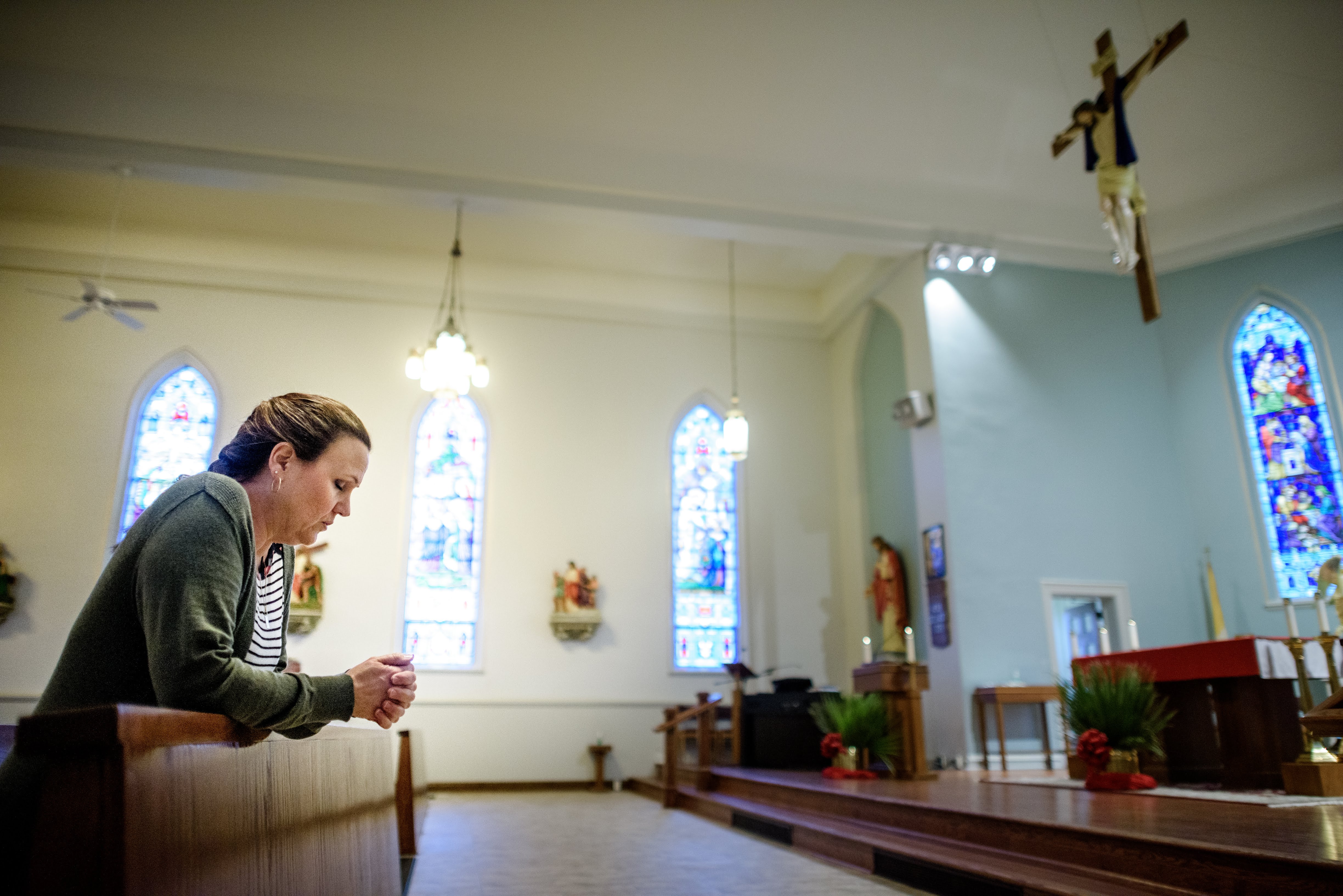The Church offers special opportunities for grace, such as on Fridays during Lent — but many Catholics don’t know it
DETROIT — Most Catholics are familiar with Lent as a time of spiritual preparation, penance and fasting.
But fewer Catholics might be aware that the Church offers a plenary indulgence during this holy season to those who seek one.
An indulgence — which has long been misunderstood both inside and outside Catholic circles — is defined as the “remission of temporal punishment due to sin.” Put more plainly, it’s a spiritual cleaning of the “mess” sin makes after a person has received the sacramental graces of confession and absolution.
When a person goes to confession, he or she is forgiven of the eternal punishment sin brings — the soul is cleansed by the blood of Christ and made righteous in the sight of God — but reparation for that sin must still be made. This is normally the role of penance, during which the penitent offers prayers or acts of charity in order to show one’s sorrow and offer recompense for having done wrong.
If one dies in a state of grace after receiving sacramental confession and absolution, but before having offered fitting penance, the Church teaches, that soul will undergo purification before entering heaven — a doctrine commonly known as purgatory.
“All who die in God's grace and friendship, but still imperfectly purified, are indeed assured of their eternal salvation; but after death they undergo purification, so as to achieve the holiness necessary to enter the joy of heaven,” the Catechism of the Catholic Church states in paragraph 1030.
An indulgence, meanwhile, is a special grace offered by the Church that either partially or fully remits this “temporal punishment.”
The Archdiocese of Detroit’s Office of Christian Worship, in a Feb. 27 memo, explained the purpose of an indulgence.
“Every sin has consequences. It disrupts our communion with God and the Church, weakens our ability to resist temptation, and hurts others. The necessity of healing these consequences, once the sin has been forgiven, is called temporal punishment,” the memo stated. “Prayer, fasting, almsgiving and other works of charity can diminish this temporal punishment.”
Some have likened the idea of “temporal punishment” to having broken a window on a neighbor’s house. The neighbor can forgive the person of the offense, but justice still demands that the window be replaced.
An indulgence is one way of “paying for the window,” so to speak.
“Because of the fullness of redemption obtained for us by Christ, the Church attaches to certain prayers and actions an indulgence or pardon for the remission of temporal punishment due to sin,” the archdiocesan memo states. “Christ, acting through the Church, brings about the healing of the consequences of sin when an individual uses such a prayer or engages in such an action.”
So, how do I receive an indulgence this Lent?
The Church offers two types of indulgences: partial or plenary (full). On Fridays during Lent, the Church offers a plenary indulgence to the faithful who meet the following conditions:
- Being in the state of grace
- Recent reception of the sacrament of penance (usually understood to be within the last three weeks)
- Reception of Holy Communion
- Prayers for the intentions of the Holy Father* (an Our Father and a Hail Mary suffice)
- Then praying the prayer “En ego, O bone et dulcissime Iesu” (Behold, O good and loving Jesus) before a crucifix after receiving Holy Communion on a Friday in Lent
The prayer “En ego, O bone et dulcissime Iesu” is below.
Behold, O good and loving Jesus,
that I cast myself on my knees before you,
and, with the greatest ferver of spirit,
I pray and beseech you to instill into my heart
ardent sentiments of faith, hope and charity,
with true repentance for my sins
and a most firm purpose of amendment.
With deep affection and sorrow
I ponder intimately
and contemplate in my mind your five wounds,
having before my eyes what the prophet David
had already put in your mouth about yourself, O good Jesus:
“They have pierced my hands and my feet,
they have numbered all my bones.” (Ps 21: 17-18)
*Each month, the pope asks Catholics worldwide to pray for a specific intention. These intentions are published by the Pope’s Worldwide Prayer Network, also known as the Apostleship of Prayer. The U.S. Conference of Catholic Bishops has published Pope Francis’ 2020 prayer intentions here. For instance, the pope’s March prayer intention is for Catholics in China: “We pray that the Church in China may persevere in its faithfulness to the Gospel and grow in unity.”










